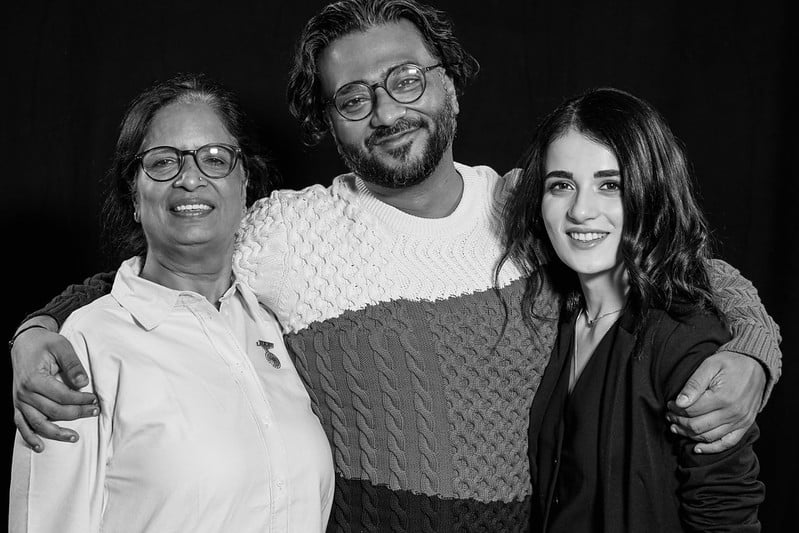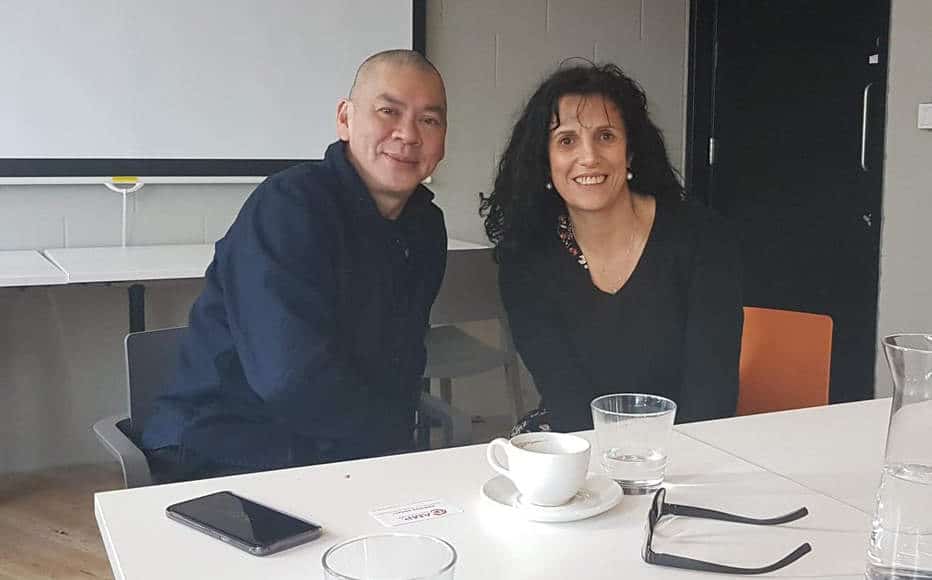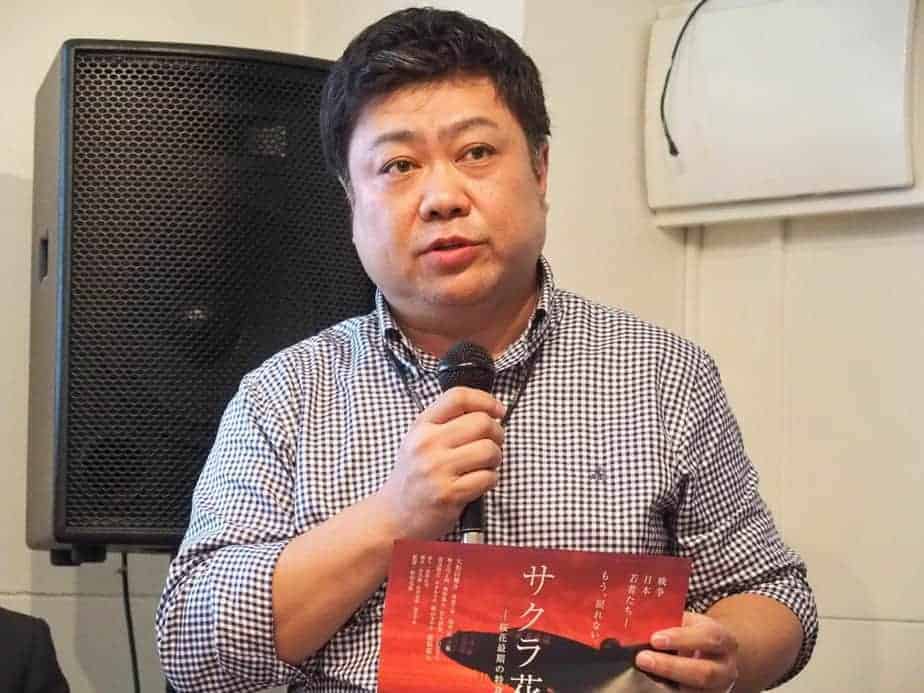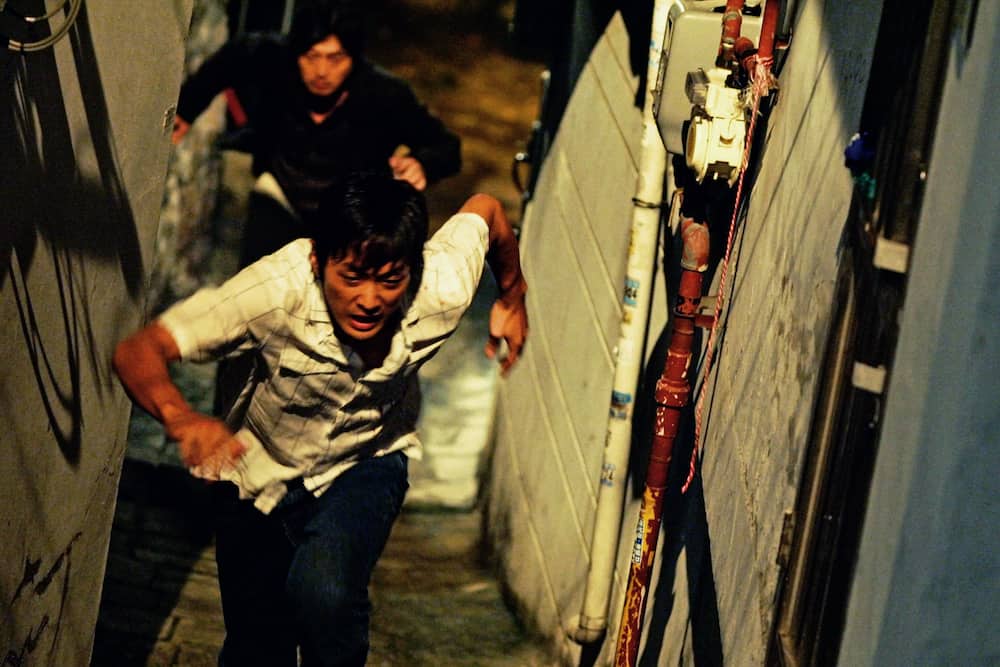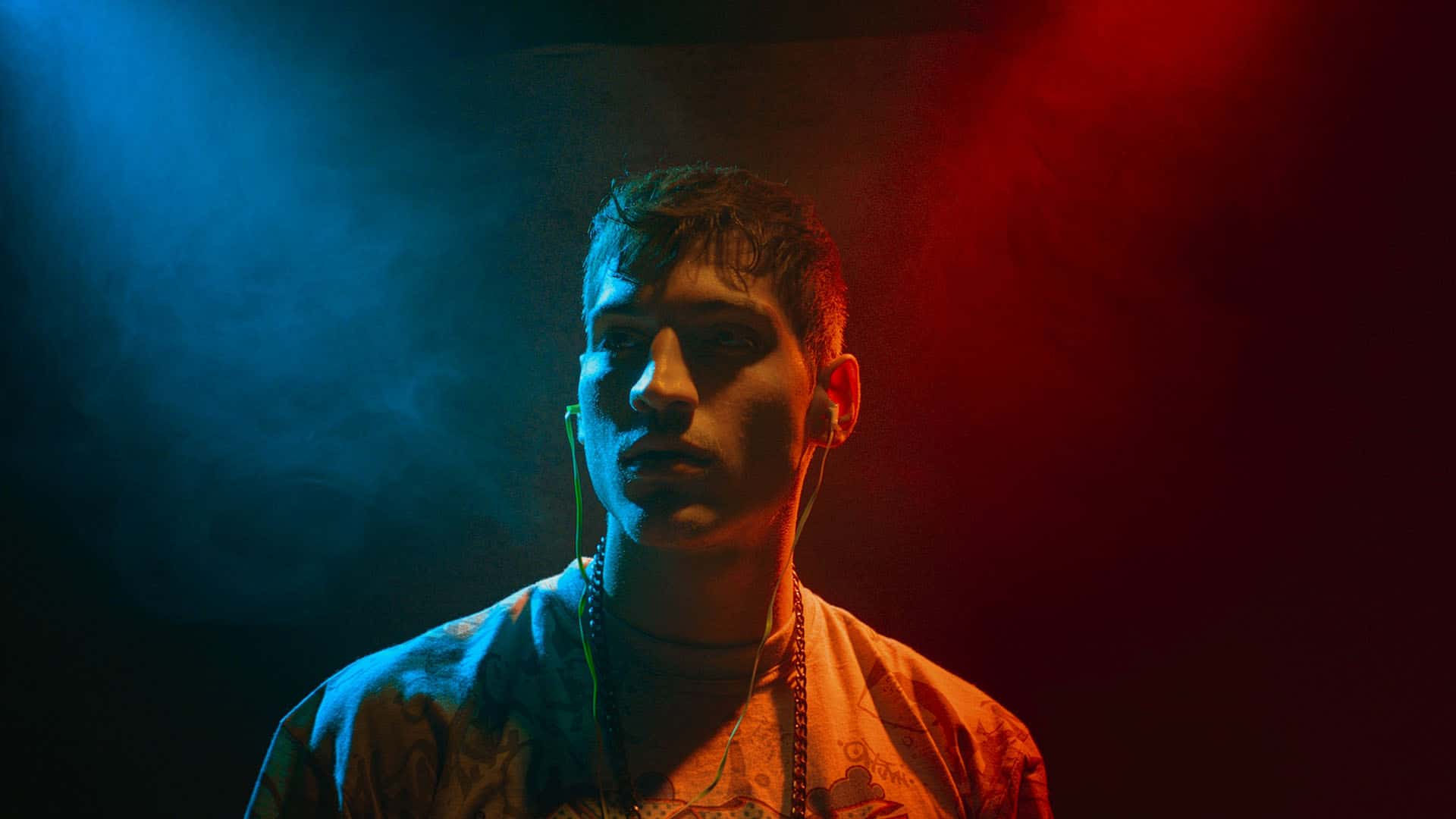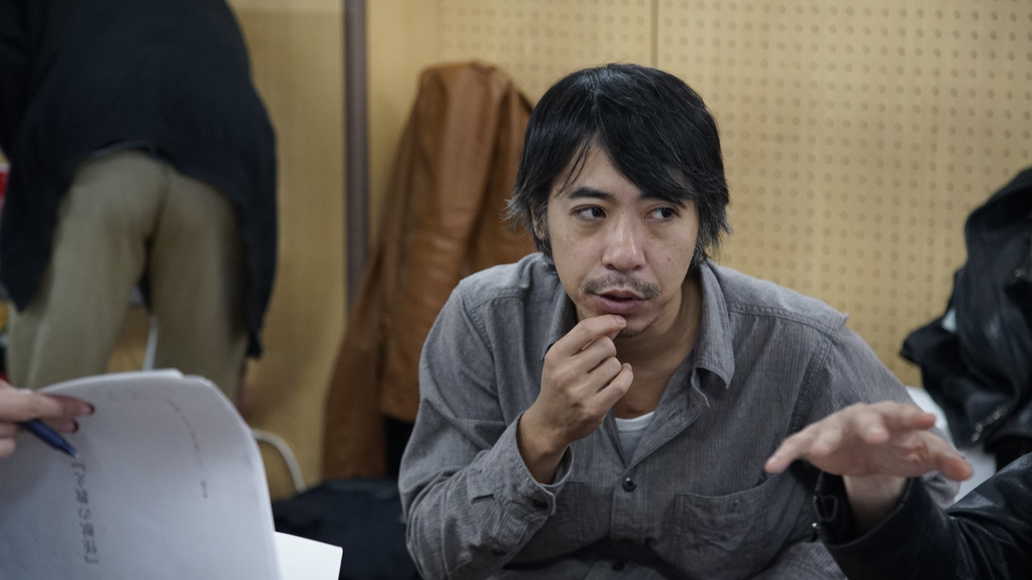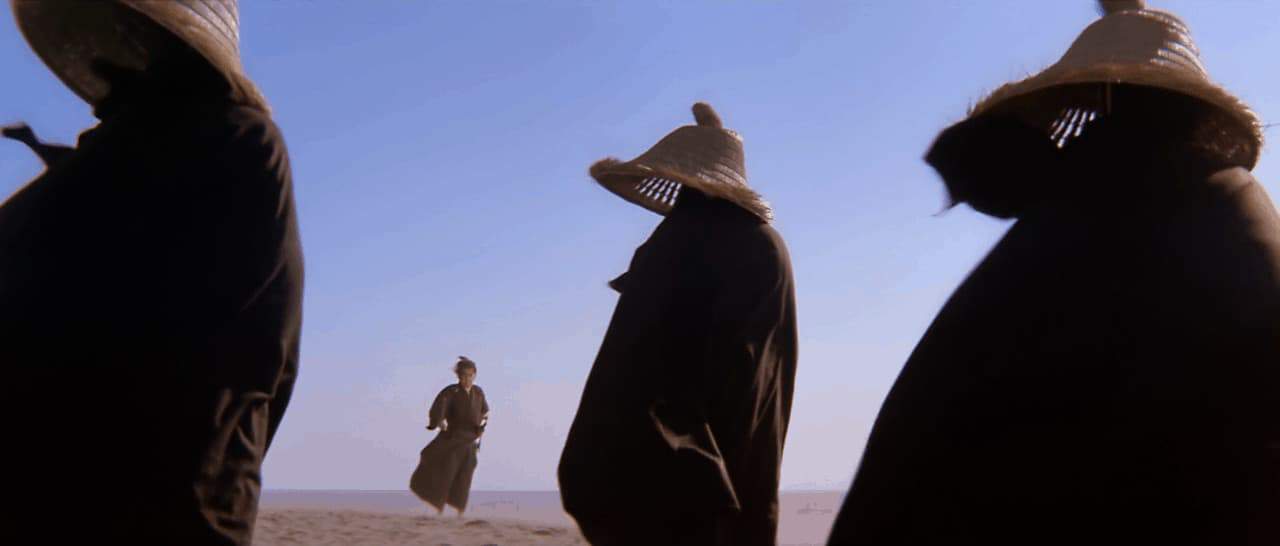Sudhansu Saria is in the Official Selection – Competition of PÖFF with his accomplished drama “Sanaa“, a story about a strong, independant woman (Radhika Madan) who is challenged by many obstacles that threaten her plans for future.
We met with the director during the festival to speak about his feminist views, gender equality, and the importance of presenting the real image of India, and not such that western audiences expect to see.
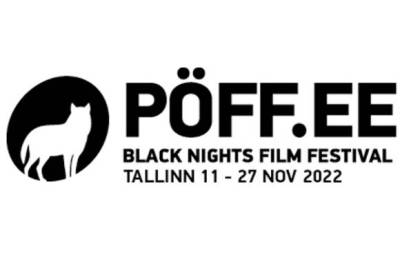
Your debut feature “Loev” had its world premiere in Tallinn six years ago, and “Sanaa” is now competing for Grand Prix in the festival's official selection. What kind of significance does this festival have for you?
It's honestly the birthplace of my cinema. It's a place that legitimized my work. The other film festivals that I went to paid attention to my film because Tallinn had selected it. I think that the festival boosted my career as a film director. I like it. It's such a modern festival. It is more open to the Indian arthouse cinema. They are more aware of what is happening on the scene now, and they are not looking for Indian moviemakers to satisfy their desire for poverty porn. Not something that is happening in the slums – which many European festivals are selecting, but the contemporary stories, and that is fantastic. At least that is the kind of cinema I make. I am a child of many cultures, and Tallinn has always been above the usual expectations and ready to discover new things.
Your film focuses on a strong female character and the topic of abortion, in a script that is very feminist. Why did you decide to make a film about it?
My answer is – why not? Even I was asking myself a question if I should, but I have learned from listening to female filmmakers and listening to female writers, about the disproportionate amount of space taken up by male voices. If anything, we have to work harder to make men shut up and listen, and allow women to talk more. It is my desire that a film like “Sanaa” would have been written by a woman, and made by a woman. I would be the first person to buy a ticket and watch it. But that wasn't happening. I started asking my female friend filmmakers if they wanted to do it. First you have to deal with the trauma of gender experiences, and then get locked into a box where you only can make such movies. Because men get to do action, superhero and genre movies, and generally movies that make a lot of money, and they give their support to women on twitter. It turns out, ironically speaking, all I have to do to be a good feminist is to tweet about it.
As an ally. I thought the most precious thing you've got is time. And if you do not devote that time to make a movie which will make this world a better place from a gender perspective, then you are a fake. For me, that became the biggest thing. The duty of an ally is to listen, to pay attention, to do the research, to have good intentions. We have heard all of that before. Women's issues are human issues. We do not have the responsibility for one gender only. I always paid attention to stories written and directed by women.
The other thing I did to make sure that the attention wasn't false is to really surround myself by powerful female collaborators, whether it is my cinematographer (Deepti Gupta), costumer designer (Ameira Punvani), makeup artist (Ayesha Seth) or my producer, the cast anyway. They would always have an authenticity check. I made sure there were enough female film professionals involved in the project since the script development.
It takes a lot of work to tell your producers that you have, for instance, a female DoP. In “Sanna” we wanted to have at least 50:50 procent of female and male film professionals, and although it was difficult, we stayed faithful to the plan. It's often more convenient to work with the same people, so the vicious cycle continues. I am still going to hire the best cinematographer.
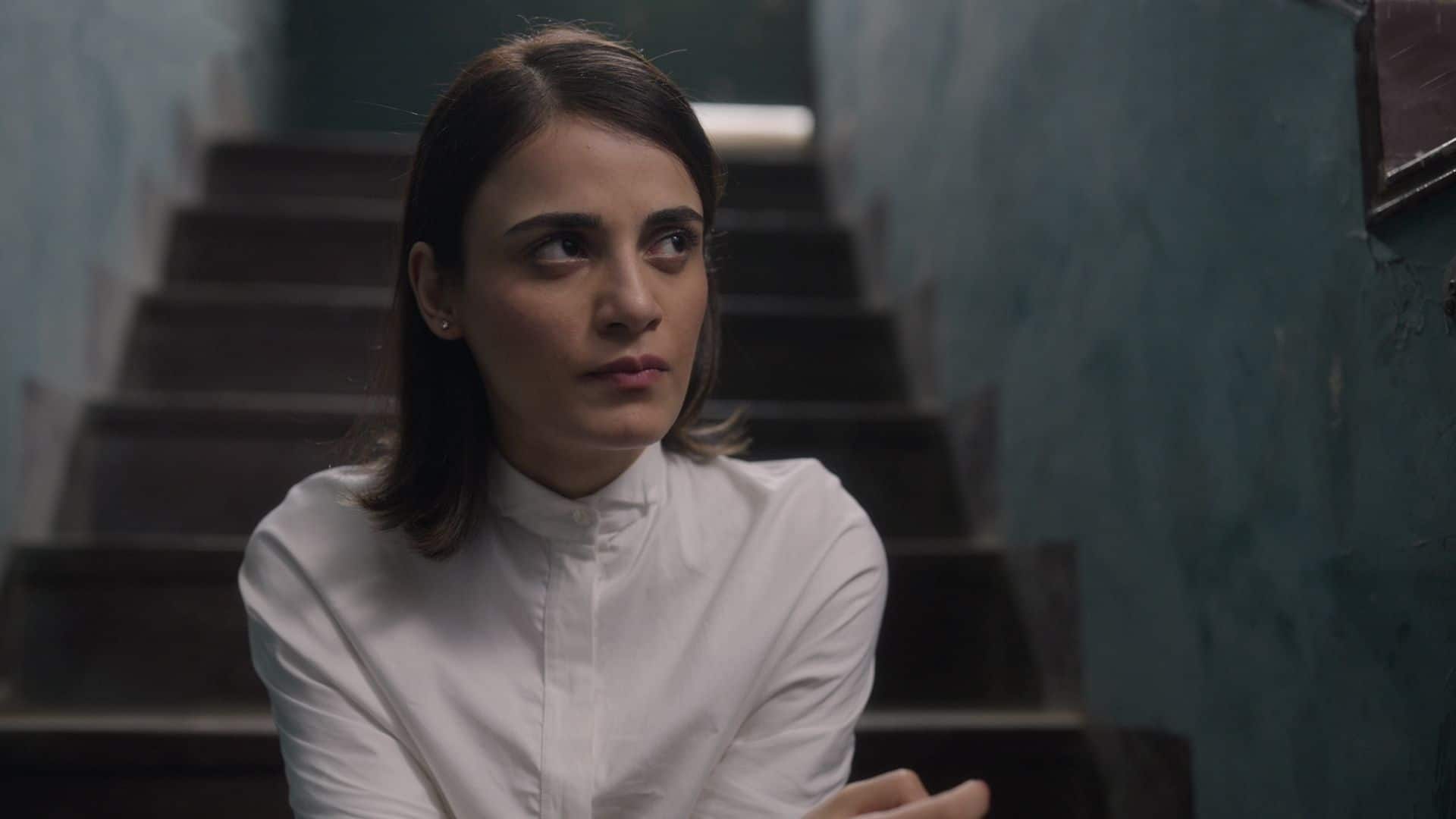
The most impressive moments in the film are not the obvious ones. There are many tiny details that make it special. For instance, a hysterical husband in the birth clinic who urges the doctors to do everything they can to save his unborn son, because ‘a daughter doesn't complete a family'. Also, something else was a bit of a shocking detail that I wasn't aware of: a single woman cannot rent an apartment.
It's crazy, because India is a country of contradicitons. Even though it is legal to rent an apartement, and theoretically anyone can, the apartment complexes discriminate by religion and gender. They are specifically biased against single women. If you are a group of women who want to live together and get a housing, everybody gets scared that their place is going to become a party house, that there will be a stream of men coming in and out. The patriarchy becomes very strong in their urge to manage and control women, and often it's the other women in the complex who are fighting against it because they look at single women as a threat. They are going to steal their husbands or spoil their traditions. So for me, representing that whole tapestry in the movie was something essential and the most accurate portrayal of womanhood of a kaleidoscopic kind. You look at it as an addition of many, many pieces: the doctor in the public clinic and her mother who has a private one, the nurse who is giving her support to the patient, a friend who is getting married and the other one who doesn't ever want to get married…
You also put a mirror in front of men.
The contradiction was what was funny and so it's important to me to capture the complexity of the attitude and to sanitize it. The man who is hysterical in the clinic is such an important character, and he is played by a fabulous Indian actor, and I am very thankful that he accepted to play that little part. Because one's attitude towards gender is also related to class. It's all overlapping. For him, in the environment he belongs to – and you can tell from his clothing: he works for a politician, he's in the system, so he is taught to think that way. This frustration he feels, a need to dominate over a hospital worker brings him to such a point of frustration that he starts crying, which is the most emasculating thing. His attitude is – if this is a town hospital, and you are a female doctor, I should be able to control you. What he says doesn't mean that he doesn't love his daughter. He most certainly does. But he also wants a son, just to complete his task, so to speak. I enjoy packing the film with uncomfortable contradictions because I feel that the audience wants to be taken in a certain direction. Life is like that: it is full of incovenient corcumstances.
You are also breaking a taboo by showing a bit of nudity which is not sexualized, albeit quite untypical for an Indian movie.
We never thought of that particular scene in such way, and there was a lot of discussion about how to do it and what we should show. I was lucky to enjoy a relationship of trust and collaboration with my actress. And it is only because she trusted me from the beginning. That scene was about the actual depiction of the body which can't work if you don't perform with confidence. I deliberated it a lot because I wanted to check how much honestly there was in how I was presenting that hospital scene. Sometimes nakedness can make you walk different ways,because you become shy. But when your gaze doesn't see a naked body in a sexualized context, you get another meaning. For me, that moment became about observing her stripped down back to her roots, and she was suddenly a child again, and for the 1st time in the film she was completely devoid of lies and accepting her fragility and helplesness. She was under the preassure of empowerment for a very long time, but she never really reached it. It was very uncomfortable to me to be alone with my own shyness and protective of the actress.Also, I am very lucky to have a female editor who is terrific. So, my cinematographer and my editor were my conscience that guided me. Of course, we haven't applied for the Indian Censorship Certificate yet, so we don't know what will survive in terms of reaching the audience.
But, you are completely right. We are a coy society. We come from a long tradition of covering ankles, and we certainly don't have nudity in our movies. There is this complete rigidity under the pretext that it makes the audience uncomfortable. But I think that, in reality, it is also looking away from sex as a sensual part of the human experience. That shyness comes from something else, and I must admit that I also participated in that game by treating nudity as sexy which is why it is even more powerful for me to have any kind of female body representation not in a sexual-, but in a medical context.
When you were building the characters, was it your intention from the beginning to show the different mechanisms of control?
When you are looking at the modern obsession with perfection, it's all about the obsession with control. The lack of control is considered a weakness, and vulnerability becomes a failure. The same goes for asking for help. Interestingly enough, also the empowerment can become toxic as you isolate and are left alone. You have to project this idea of constant sucess. So, control to me is the essential function of that. I begun writing about a woman who, when you look at her, is hanging upside down doing crunches, everyone is looking at her, she's wearing fancy clothes, she's working hard and sealing the important deals, and she is the winner type. As things one by one start happening to her, only then you start realizing what kind of things she is rejecting in her life, and all the help she could get. The film becomes an examination of self-hate. When you look at her relationships, she is a woman who wants men she can't have. And again, it's her feeling of achievement that stands in the way. She wants to climb, and conquer the man who is on the top of the pyramide in her office, and in such way have more control.
That must have been hundreds of actresses who came to the casting, so the logical question is how you casted Radhika for the role. Did you know her from before, or maybe from her previous TV and cinema performances?
I knew of her, but I wasn't really that familiar with her work. She has always been playing much younger characters, late teens. I was completely wrong about her. It was my coproducer on this film Vinit Masram who introduced me to Radhika. Since I was 100% convinced that she would neither understand nor accept this role, all this according to my experience of actresses who aspired to specific types of roles: they want to do the songs, dance, to have a romantic plot, and do studio films. Doing an independent movie like this one, you have to be a subject of an invasive, toxic investigation and play an unlikeable part. The chances of failure are very high, so I never honestly cared. I really didn't hthink she'd accept. She read the script and said yes decisively and very fast. I went to meet her without any sense of how that was going to go. But when me met and hung out for 3-4 hours, I realized how extrenely intelligent and capable she was. She knew exactly what she was getting into. She succeeded in the system, but she wanted to take over control over her own career, to be in charge and to pick the stories on her own. Also to get away from the classical roles she was getting. The preparation process was cruel and gruel. In real life, she is nothing like this character. It took a lot of work for us to get everything right, but we did it.
Also the part of the young neighbour was a challenge. So many actors applied for that role, but none of them fitted in it as good as Nikhil Khurana. 135 actors came to the casting for the ‘fuckboy' part
Pooja Bhatt is also incredible in her role as Sanaa's mother.
Oh, yes! She is a legendary Indian actress. In the 1990s, she was the ultimate star. She was the Anne Hathaway of India. She got every part. I met her at a party, and she was such a well-spoken, articulate activist, and a feminist to the core. She is also a writer, director, and production designer. I sent her the script saying: “Look, even if you only give me your opinion on it, I am fine but it will break my heart if you say no to that part.” She read it, and 24 hours later she called me to tell me that that was her film, and that she was doing it. Her story is central for the film.
You don't really fully understand Sanaa before that interaction between her and her mother.


